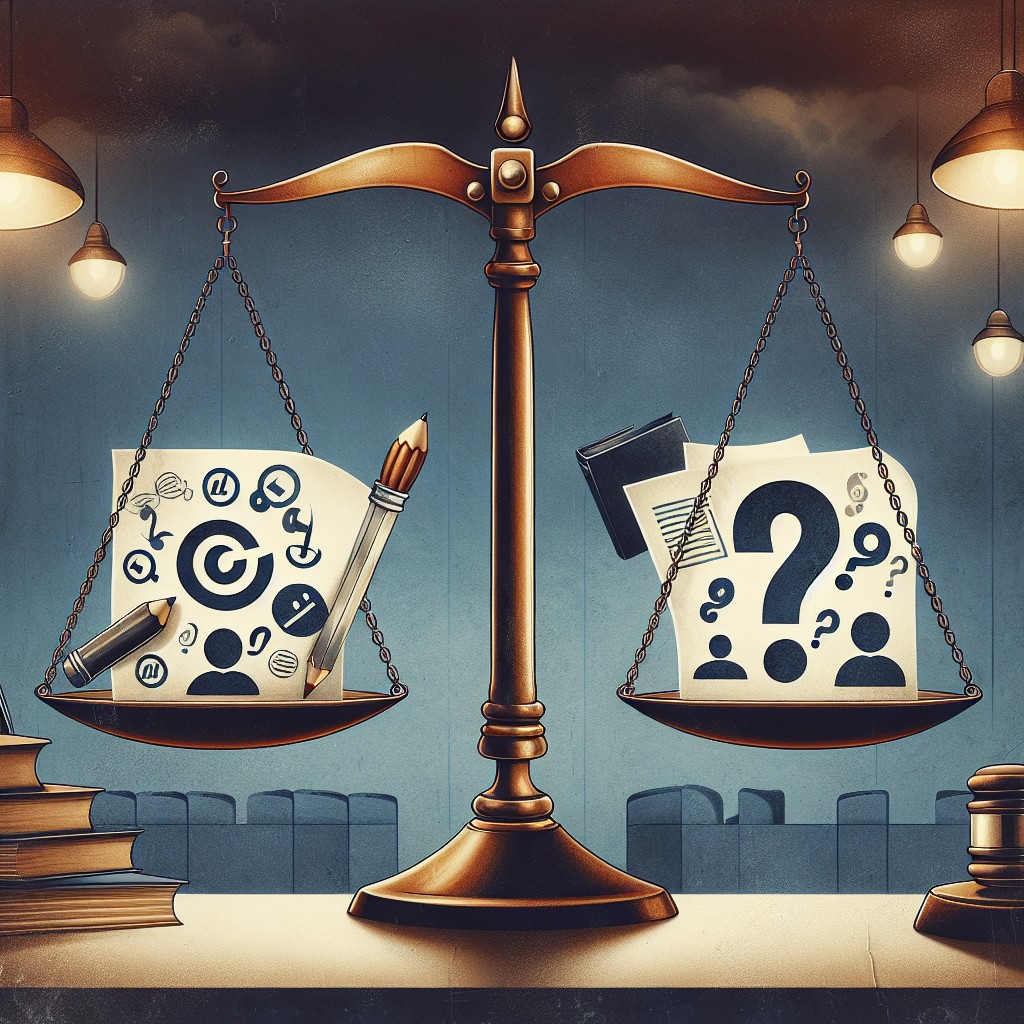In the digital age, content creators face a constant battle to protect their work while also respecting the rights of others. Copyright and fair use are two important concepts that every content creator should be familiar with. In this guide, we will explore the differences between copyright and fair use and provide valuable insights for content creators.
Copyright is a legal protection granted to the original creators of various forms of intellectual property, including literature, music, art, and more. It gives creators exclusive rights to reproduce, distribute, display, and perform their work. Copyright protection begins the moment a work is created, and it is not necessary to register the work with any government agency.
Fair use, on the other hand, is a doctrine that allows limited use of copyrighted material without permission from the copyright owner. It is designed to balance the rights of copyright holders with the public's interest in accessing and using copyrighted works for purposes such as criticism, commentary, news reporting, teaching, and research.
Determining whether a particular use of copyrighted material qualifies as fair use involves a four-factor analysis:
1. Purpose and character of the use: Fair use is more likely to apply if the use is transformative, meaning it adds new meaning, expression, or purpose to the original work. Non-profit educational or personal use is also more likely to be considered fair use.
2. Nature of the copyrighted work: Fair use is more likely to apply to factual works rather than highly creative or fictional works. Additionally, using published works is more likely to be considered fair use compared to unpublished works.
3. Amount and substantiality of the portion used: Fair use is more likely to apply if only a small portion of the copyrighted work is used. However, using the heart or essence of a work may weigh against fair use.
4. Effect on the potential market for the copyrighted work: Fair use is less likely to apply if the use negatively impacts the market or potential earnings of the copyrighted work.
It's important to note that fair use is a defense, meaning it can only be claimed after a copyright holder accuses someone of infringement. Ultimately, it is up to a court to determine whether a particular use qualifies as fair use.
To avoid potential copyright issues, content creators should always strive to obtain proper permissions and licenses when using copyrighted material. When in doubt, it is best to consult with an intellectual property attorney or seek guidance from reputable sources specializing in copyright law.
In conclusion, copyright and fair use are crucial concepts for content creators to understand. While copyright protects the rights of creators, fair use allows for limited use of copyrighted material under certain circumstances. By familiarizing themselves with the principles of copyright and fair use, content creators can navigate the complex landscape of intellectual property and ensure that their work is both protected and respectful of others' rights.

Published on March 21, 2023
Copyright vs. Fair Use: A Guide for Content Creators
Share This Article
More Articles You Might Like
Discover More Content
Explore our collection of articles across various topics and categories. From cutting-edge technology insights to wellness wisdom, we curate the best stories to expand your horizons.
Article ID: 304